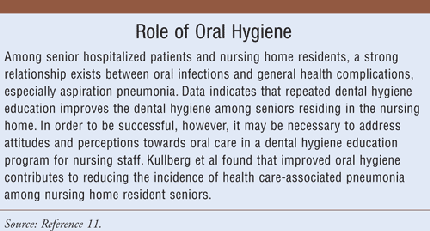What is H. pylori? H. pylori
(helicobacter pylori) is a bacterium that is in the stomach and is responsible for most cases of peptic ulcer. About half the world's population has this bacterium makes it the most common bacterial infection in humans. H. pylori
more common in developing countries. The risk of infection of H. pylori
associated with socio-economic status and poor living conditions such as overcrowding cameras, lack of clean, running water and more brothers and sisters. As a result, most children in developing countries infected to 10 years. In New Zealand a higher prevalence observed among Maori and Polynesians. Studies show that about 5% of European children become infected before the age of 20 years, unlike 50% of Polynesian children. The exact route of infection remains unknown, but from person to person through oral transmission / oral or fecal / oral effects are the most likely cause. This means that activities such as shared meals, cutlery or poor toilet hygiene can lead to transmission of H. pylori
another person. What diseases are clearly correspond with helicobacter infection >> <<? H. pylori causes direct disease of the stomach. Other diseases, probably related to the immune response of the organism to the bacteria. What are the symptoms of Helicobacter pylori infection >> <<? Most people with helicobacter infection >> << have no symptoms. Symptoms occur if the infection H.
Pylori causes peptic ulcer or gastritis. These symptoms may be nonspecific and range from:
As H. pylori
damage the stomach? Damage to the gastric mucosa occurs through a complex interaction between bacteria and host immune response. H. pylori produces
several enzymes and microbial products that directly damage the gastric mucosa. The immune system responds to the installation of ornate inflammatory response in an attempt to destroy bacteria. As a consequence of this inflammatory reaction, stomach inadvertently damaged. What studies exist for helicobacter? There are several tests available to detect the presence of H. pylori blood test
This defines the specific antibodies against the bacteria H. pylori >>. Check for expiration << This includes drinking specialized carbon labeled urea solution. This solution-by H. pylori
and its breakdown products can be detected in breath. Chair this detects H. pylori
proteins in feces. Endoscopic test This is due strattera cost to the use of optical devices for visual inspection of internal parts of the body. A flexible tube inserted through the mouth into the stomach and upper small intestine. Small tissue samples can be taken from the stomach wall, which are then tested for H. pylori
. Test of blood and breath test, often the first line approach testing H.pylori. Endoscopic biopsy of invasive procedure, and often for patients who need endoscopy for another reason. Who should be tested? Testing is not recommended for people who are asymptomatic (without symptoms) or have a history of peptic ulcer. However, some groups who are at risk of ulcers or stomach cancer may be considered for testing asymptomatic. What is the treatment? Treatment of Helicobacter pylori infection >> << involves taking several drugs for 7 to 14 days (triple therapy), that was, proton pump inhibitor (inhibitor of gastric acid secretion) such as omeprazole 40 mg once a day , amoxicillin 1 g twice daily and clarithromycin 500 mg twice a day. Treatment with 90% of people. What is the relationship of H. pylori

to skin diseases? H. pylori
was involved in various diseases unrelated to the gastrointestinal tract. The skin is an example and some research has shown us the following terms:
4.5 Chronic Some studies have shown the relationship between H. pylori infection
and chronic urticaria. It is believed that infection H.
Pylori increases the permeability of the gastric mucosa, thereby increasing the influence of allergens (substances that cause allergies) in the gastrointestinal tract. In addition, the immune response to H. pylori
produces antibodies that can stimulate the release of histamine in the skin. H. pylori
can increase levels of nitric oxide in the blood or tissues facilitates flushing and erythema (redness) of rosacea. H. pylori
may be one of the body can cause an inflammatory response in psoriasis. H. pylori
can cause autoimmune reactions and skin glands causing Sjgren syndrome. Generalized immune thrombocytopaenic or treatment H. pylori
effect on skin disorders? Several small studies have shown that eradication of H. pylori
is positive for some skin diseases such as chronic urticaria, the disease Behcheta, red lichen planus, atopic dermatitis, Sweet disease and systemic sclerosis. Conditions that can not use privileges are psoriasis, rosacea. These studies are not randomized and include a small number of patients, so no definitive conclusion can be drawn on the Elimination of H. pylori
for skin diseases at present. .
No comments:
Post a Comment